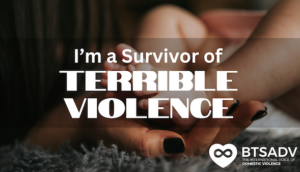By Emilie Trepanier
The most common killer of women around the world is becoming more common in the United States, and its cause is firearms. Domestic violence is women’s leading killer globally.
According to a study conducted by a United Nations report in 2018, 87,000 women were murdered globally in 2017 and over half of them were killed by intimate partners or family members. This means that six women are killed every hour by someone they know; usually their husband, boyfriend or ex. This study also revealed that 82% of intimate partner homicide victims are women.
That same study found that in 2012, 48,000 (or 47%) of female homicides were by intimate partners or family members, suggesting that violence has increased globally over the last five years.
Geographically, Asia accounts for the most murders of women at 20,000 in 2017; Africa at 19,000; North and South America at 8,000; Europe at 3,000; and Oceania at 300. According to the study, because the intimate partner and family related homicide rate is 3.1 per 10,000 female population, this puts Africa’s women at the greatest risk of being murdered by domestic violence.
While the United States stands at a total of 2,237 intimate partner homicides in 2017, these homicides are drastically related to gun violence, and women are the most common victims, according to research conducted by Northeastern University criminologist James Alan Fox and his colleague Emma E. Fridel.
This study found that after nearly four decades of being on the decline, domestic violence is on the rise again and primarily driven by gun violence. The study analyzes gender differences in homicide patterns over a 42-year period using data obtained from the FBI.
Since 2010, gun-related murders of intimate partners has risen 26%.
Between the years 2014 and 2017, intimate partner homicides have increased each year. In 2014 the number was 1,875; in 2015 it was 2,096; in 2016 it was 2,149; and then, as previously stated, 2,237 in 2017. The majority of victims are female victims, which has risen by 19% since 2014. In addition, in 2017, 926 of the 1,527 women murdered by partners were killed with guns. While most data estimates three women a day are murdered by domestic violence, Fox’s most recent data reveals the number is actually four.
As the study shows, nearly have of these women die at the hands of their partners, and only 5% of men have the same fate. Another study found that every 16 hours, a woman is fatally shot by her boyfriend, husband or ex.
In Fox’s study, he found that at first, intimate partner homicides were showing a dramatic decline since the 1970’s. He said this was due to fewer women killing their male partners. However, this number is increasing, but with women being the majority as victims and with firearms being the likely weapon. Fox also found that fewer women are killed by their partners in states with “robust” gun control policies.
“Women don’t have to pick up a loaded gun to get out of a situation,” Fox said about his data, saying that because there are presently more laws to protect women than there were back then, women no longer feel it is necessary to using firearms. He said, “This is information we have to pay attention to… It can’t be ignored.”
The 2019 bill, Violence Against Women Act, which directs the country’s response to domestic violence, is up for reauthorization. This bill would make it illegal for individuals who are subjects to temporary domestic violence protective orders to own a gun, as well as people convicted of misdemeanor stalking. In addition, it would also add “dating partners” to the definition of domestic violence under federal law – closing the “boyfriend loophole” (a gap that allows a convicted abuser to still be allowed firearms, if a woman presses charges against that dating partner). However, this bill is being opposed by the National Rifle association because it includes a handful of measures that would tighten gun restrictions on individuals accused of domestic violence. It has already passed the House and now faces a battle in the Senate.
If you or someone you know is in an abusive relationship, there is help. You can visit the Break the Silence website at www.breakthesilencedv.org or chat with one of our helpline advocates at 855-287-1777.



